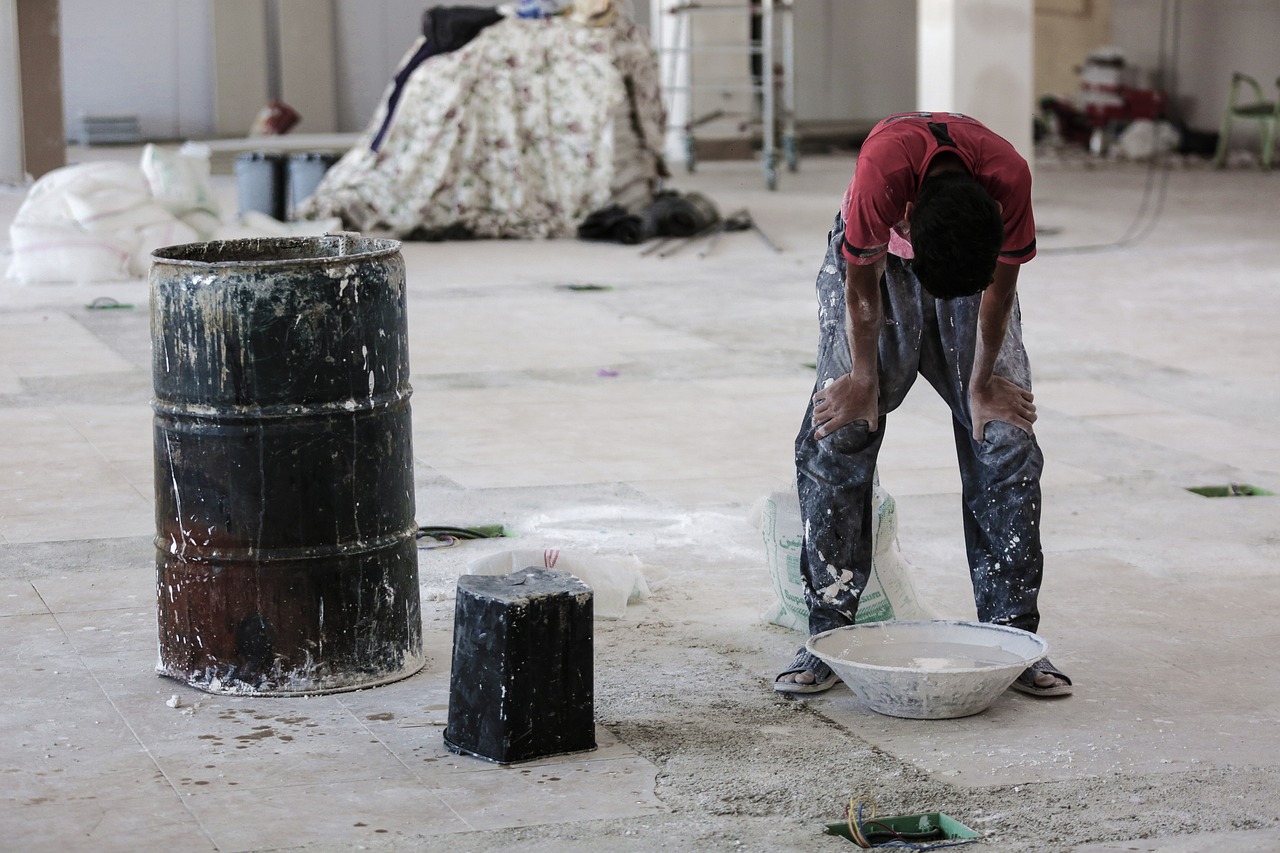Employment relationships are built on mutual rights and obligations. One of the employer’s most fundamental obligations is to provide the necessary work environment and equipment for the employee to perform their job. In this context, the furniture and equipment provided to the employee carry with them significant responsibilities within the framework of occupational health and safety, the employer’s duty of care, and the provisions of the Code of Obligations. Especially in cities like Antalya, with a dynamic labor market, for businesses operating in a wide range of sectors, from tourism and agriculture to the service sector and industry, a proper understanding of these responsibilities is crucial for both preventing legal disputes and establishing a healthy work environment.
In this article, we will examine in detail the legal responsibilities of the employer in the delivery of furniture and equipment to the employee in light of the relevant legislative provisions.
Equipment Responsibility within the Scope of Occupational Health and Safety
The employer’s most fundamental responsibility for the furniture and equipment they provide to their employees stems from Occupational Health and Safety (OHS) legislation. Occupational Health and Safety Law No. 6331 imposes an obligation on employers to provide a healthy and safe working environment in the workplace.
Basic Approach of the Occupational Health and Safety Law
The employer is responsible for ensuring that all equipment used in the workplace does not harm the health and safety of the employee. This responsibility extends not only to the machines used in production but also to furniture, computers, printers, and all other work equipment used in the office environment. The employer must ensure that this equipment:
* Ensuring Safety: Delivered equipment must comply with relevant safety standards in terms of design, production, and use. Products bearing the CE marking should be preferred, and the necessary certifications should be verified.
* Performing Periodic Maintenance and Inspections: Regular maintenance and repair of equipment is essential to ensure their continued safe use. Periodic inspection reports should be kept, especially for risky equipment such as power tools and lifting equipment.
* Providing Operating Instructions and Training: Workers must be provided with adequate information and training on the safe use of the equipment delivered. They must be briefed on operating instructions, risk assessment results, and emergency procedures.
* Conducting Risk Assessment: It is the employer’s duty to determine the risks that may arise from work equipment and to take measures to eliminate or reduce these risks.
Failure to fulfill these obligations may result in workplace accidents or occupational illnesses, and the employer may be held directly liable. For many businesses in Antalya, particularly those in the construction, industrial, or tourism sectors, the proper use and maintenance of such equipment is crucial.
Personal Protective Equipment (PPE)
Personal Protective Equipment (PPE), a specialized area of Occupational Health and Safety legislation, refers to any tool, device, tool, or appliance worn, worn, or held by workers to protect against one or more risks that threaten their health and safety. Employers are obligated to provide PPE free of charge, ensure its maintenance, provide training in its use, and supervise its use. For example, this includes providing PPE such as helmets, safety shoes, and vests on construction sites, and gloves and masks for workers working with chemicals. If a worker is harmed due to the lack or malfunction of this equipment, the employer will be liable.
The Employer’s Liability Under the Law on Obligations in the Provision of Working Environment and Equipment
Employers’ responsibilities to employees are not limited to OHS legislation. The Turkish Code of Obligations (TCC) No. 6098 also regulates the employer’s general duty of care and other obligations to employees in labor relations.
Employer’s Supervision Obligation and Provision of Tools and Equipment
Pursuant to Article 417 of the Turkish Code of Obligations, employers are obligated to protect and respect the employee’s privacy and maintain a workplace environment consistent with the principles of integrity. This obligation also includes providing the employee with a suitable working environment and the necessary tools and equipment to perform their jobs. The furniture and equipment provided to the employee must be suitable and adequate for the employee to work productively and healthily. For example, if an employee experiences health problems due to a non-ergonomic chair or inadequate lighting, the employer may be deemed to have breached this duty of care.
Fixed Assets Assigned to the Worker and Responsibility for Their Use
In many businesses, employees are assigned fixed-asset equipment such as computers, cell phones, and vehicles to perform their jobs. This means that these items, which belong to the employer, are allocated to the employee’s use. In such cases:
* Debit Report: The employer must prepare a written debit report for the fixed assets delivered to the employee. This report must clearly state the type, model, serial number, delivery date, and current condition (undamaged, scratched, etc.) of the delivered item. It must be signed by both the employer and the employee. This report serves as important evidence in the event of any disputes.
* Workers’ Duty of Care: Workers are obligated to use and maintain the equipment entrusted to them with the care required by the job, and to avoid using it for purposes other than its intended purpose. This includes avoiding any damage to the equipment, whether intentionally or through gross negligence, other than wear and tear resulting from normal use.
* Return Obligation: In case of termination of the employment contract, the employee is obliged to return all equipment assigned to him/her to the employer in a complete and usable condition.
In Antalya, the debiting of equipment such as vehicles, tablets, and smartphones is a common occurrence, particularly among companies conducting sales, marketing, or field operations. Ensuring these processes are transparent and documented is critical for both protecting employers’ assets and protecting employees from potential unfair charges.
Shared Liability for Equipment Damage or Loss
In case of damage or loss of furniture or equipment delivered to the worker, the determination of responsibility varies depending on the circumstances of the incident.
Worker’s Fault and Employer’s Liability
If a worker damages the equipment delivered to him, whether this damage will be compensated depends on the degree of fault of the worker.
#### Intentional or Gross Negligence of the Worker
If an employee intentionally damages equipment entrusted to them or used by them, or if the damage occurs as a result of gross negligence, they may be liable to compensate for the damage. Intentional intent is the act of causing harm knowingly and intentionally. Gross negligence, on the other hand, is the failure to exercise even the simplest care expected of a normal person. For example, if an employee knowingly throws a computer on the ground or drops it into a flooded area despite knowing its value, this could be considered gross negligence. In such cases, the employer may demand compensation from the employee and may also have the right to terminate the employee for just cause pursuant to Article 25/II-ı of Labor Law No. 4857. However, collecting compensation by deducting from the employee’s wages is subject to certain legal limitations and cannot be done directly without the employee’s consent or a court order.
#### Damage Due to Normal Wear and Use
Wear and tear, wear and tear, or minor malfunctions resulting from normal use of work equipment are not the employee’s responsibility. The employer is required to ensure the equipment is maintained and repaired for such situations. For example, the wear and tear of the fabric on an office chair or the diminished battery life of a computer are not considered the employee’s fault.
#### Violation of the Employer’s Duty of Care and Supervision
If equipment is damaged due to the employer’s failure to fulfill its maintenance or inspection obligations, the employer is liable. For example, if a worker is injured by a machine that is known to be faulty but not repaired, or if the worker is not trained to use the equipment safely, the employer is liable.
The Importance of Documentation with Delivery and Return Procedures
The way to minimize disputes that may arise regarding furniture and equipment delivery in employer-employee relations is through transparent and accurate documentation.
Embezzlement Reports and Inventory Management
As mentioned above, it is crucial to prepare a debit record for all fixed assets delivered to employees. These records not only document the delivery but also document the condition of the equipment at the time of delivery, providing a reference point for potential damage claims. A wet signature is essential for legal validity. Employers should support these records with a systematic inventory management system, tracking equipment serial numbers, models, and delivery dates.
Equipment Return at Termination of Employment Contract
In the event of termination or expiration of the employment contract, all equipment entrusted to the employee must be returned to the employer, complete and undamaged. It is also important to prepare a return report and document the current condition of the equipment upon return. If the employee fails to return the entrusted equipment or is found to have intentionally or grossly negligently damaged it, the employer may pursue legal action to seek compensation for the damages. However, meticulous adherence to legal procedures during this process, avoiding offsets from the employee’s receivables (severance pay, severance pay, wages, etc.), and opting for legal action are crucial for the proper resolution of potential disputes.
For many businesses in Antalya, especially in sectors where staff turnover can be high, managing these refund processes correctly plays a critical role in preventing both financial losses and avoiding legal issues.
The employer’s responsibility for the delivery of furniture and equipment to employees is a multifaceted issue shaped by fundamental legislative provisions such as the Occupational Health and Safety Law, the Turkish Code of Obligations, and the Labor Law. Employers are obligated to provide their employees with a safe and suitable work environment and equipment, maintain and inspect them, and properly manage the tracking and return of entrusted items. Employees also have a duty to use and protect the equipment they receive with care. A mutual understanding and fulfillment of these responsibilities forms the basis for a healthy, productive, and dispute-free work environment between businesses and employees in Antalya. Acting proactively and seeking support from expert legal counsel during these complex legal processes is the most effective way to prevent potential grievances for both employers and employees.


